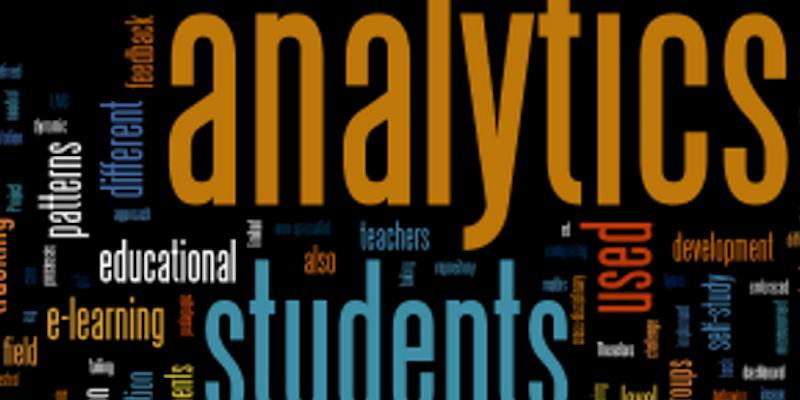13th Teaching and Learning Corpora Conference
From the Corpora List
::::::::::::::::::::::::::::
From the EUROCALL mail-list
:::::::::::::

Symposium on Learning Analytics in Language Learning and Teaching – Call for Papers
Arising from participation in the EU-funded VITAL project (http://project-vital.eu/) the University of Central Lancashire is hosting a one-day symposium on Learning Analytics in Language Learning and Teaching on 17th July 2017 in Preston. The keynote speakers include Professor Jozef Colpaert (University of Antwerp, Belgium) and Professor Bart Rienties (Open University, UK)
Abstract submission guidelines
Abstracts should be no longer than 300 words and submitted as a word attachment to the conference email address (mthomas4@uclan.ac.uk). The submission email should contain the participant’s name, affiliation and biography (50 to 100 words). The deadline is 22nd May April 2017. All submissions will be blind peer-reviewed. Accepted abstracts will be allotted 20 minutes for presentations.
Further information on the symposium is available here:
Key dates
Abstract submission: 22nd May 2017
Notification to presenters: 5th June 2017
Conference: 17th July 2017
Publication guidelines
Presenters will also be invited to submit their papers for publication in a special edition of the peer-reviewed Journal of Second Language Teaching and Research.
Conference Address
Scholars Suite, School of Language and Global Studies, University of Central Lancashire, Preston, PR1 2HE.
Participant Registration
Please register as a conference participant by following the link below. This event is free and light refreshments will be provided:
The VITAL project has been funded with support from the European Commission (Project number: 2015-BE02-KA203-012317).
Sketch Engine online CQL manual/tutorial here.
Cognitive Discourse Functions as joint concern in language and content pedagogy

Professor Christiane Dalton-Puffer, University of Vienna
Thursday 19 January 2017, 17:00-18:30
Faculty of Education, 184 Hills Road, Cambridge, CB2 8PQ, Room 1S3.
Cognitive Discourse Functions (CDFs; Dalton-Puffer 2013) designed to serve as a research heuristic as well as a development tool.
CDF construct seven core functions CLASSIFY , DEFINE, DESCRIBE , EVALUATE, EXPLAIN , EXPLORE, REPORT .
The symposium will take place on Saturday 10 June 2017 at Edge Hill University.
The focus of the Symposium is the interaction of lexis and grammar. The focus is influenced by Halliday’s view of lexis and grammar as “complementary perspectives” (1991: 32), and his conception of the two as notional ends of a continuum (lexicogrammar), in that “if you interrogate the system grammatically you will get grammar-like answers and if you interrogate it lexically you get lexis-like answers” (1992: 64).
We welcome papers reporting on corpus-based studies which examine any aspect of the interaction of lexis and grammar, or discuss methodological issues related to the corpus-based study of lexicogrammar (e.g. annotation, metrics). We are particularly interested in studies that interrogate the system lexicogrammatically to get lexicogrammatical answers. The studies may …
focus more on the lexis or grammar end of the continuum, or adopt an integrative approach.
offer different interpretations of the nature of lexicogrammar.
examine any language, or compare different languages.
examine L1 and/or L2 use.
adopt a synchronic or diachronic approach.
operate within any theoretical approach that takes into account the interaction of lexis and grammar (e.g. Construction Grammar, Lexical Grammar, Pattern Grammar, Systemic Functional Grammar, Valency Grammar).
discuss the implications of a lexicogrammatical approach for applied linguistics (e.g. lexicography, language teaching, translation, (critical) discourse studies).
develop relevant research/teaching resources.
Presentations will be allocated 35 minutes (including 10 minutes for discussion). Please send an abstract of 500 words (excluding references) to Costas Gabrielatos (gabrielc@edgehill.ac.uk). Please make sure that the abstract clearly specifies the research questions or hypotheses, the corpus and methodology, and the main findings.
The deadline for abstract submission is 12 March 2017. Abstracts will be double-blind reviewed, and decisions will be communicated by 9 April 2017.
Programme Committee
Federica Barbieri (Swansea University)
Tine Breban (University of Manchester)
Kristin Davidse (University of Leuven)
Belen Diaz-Bedmar (University of Jaén)
Eva Duran Eppler (University of Roehampton)
Lise Fontaine (Cardiff University)
Gaëtanelle Gilquin (Université catholique de Louvain)
Nick Groom (University of Birmingham)
Glenn Hadikin (University of Portsmouth)
Andrew Hardie (Lancaster University)
Sebastian Hoffmann (University of Trier)
Andrew Kehoe (Birmingham City University)
Gabriel Ozon (University of Sheffield)
Michael Pace-Sigge (University of East Finland)
Magali Paquot (Université catholique de Louvain)
Pascual Perez-Paredes (University of Cambridge)
Paul Rayson (Lancaster University)
Ute Römer (Georgia State University)
James Thomas (Masaryk University)
María Sánchez-Tornel (University of Murcia)
Benet Vincent (Coventry University)
Stefanie Wulff (University of Florida)
Participation is free. Coffee/tea and a light buffet lunch will be provided, but participants are expected to cover their travel and accommodation costs. Please note that the number of places is limited, and places will be allocated on a first-come, first-served basis.
If you have any questions, please contact Costas Gabrielatos (gabrielc@edgehill.ac.uk).
URL: https://www.edgehill.ac.uk/english/research/conferences/lxgr2017/